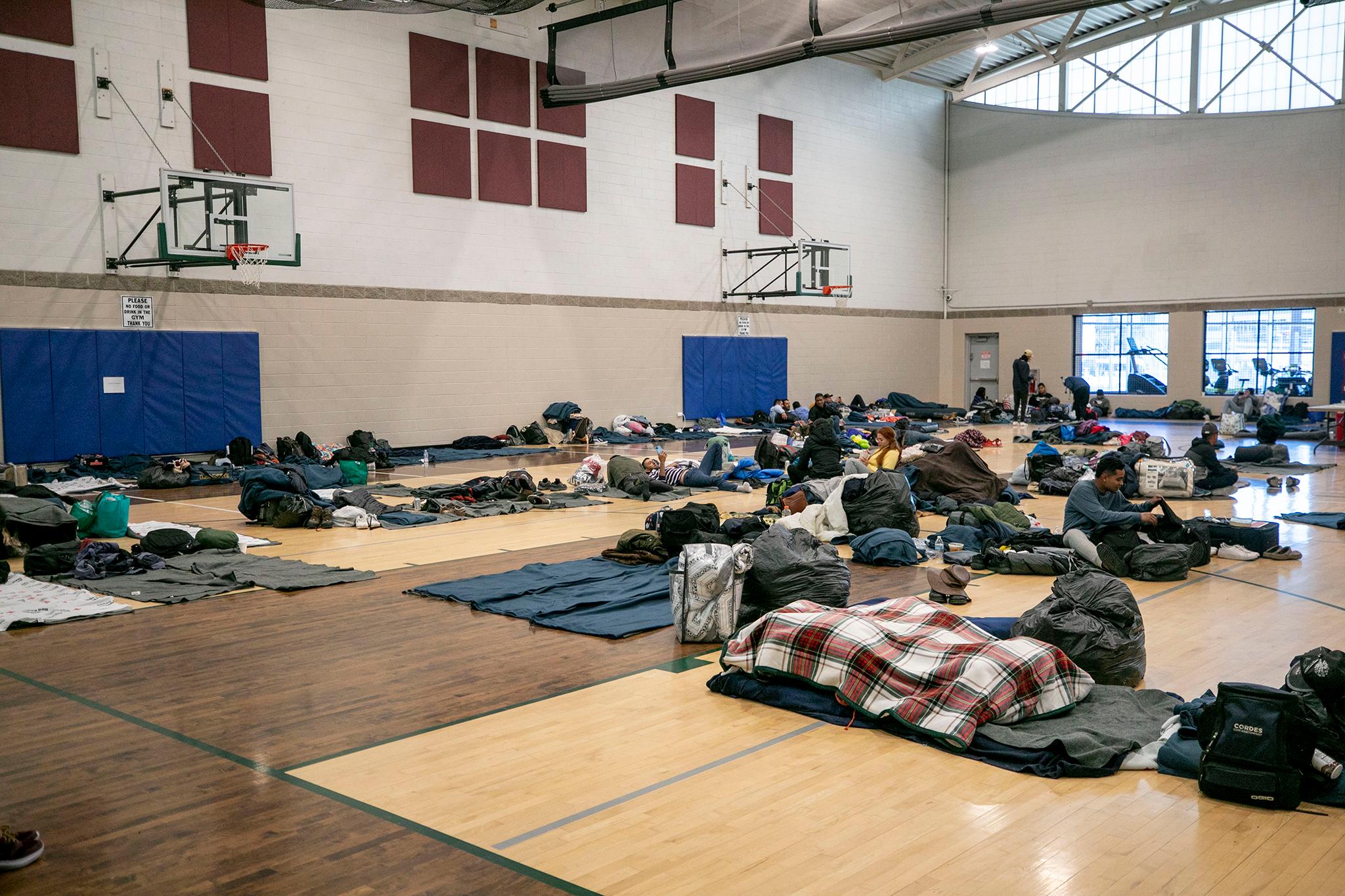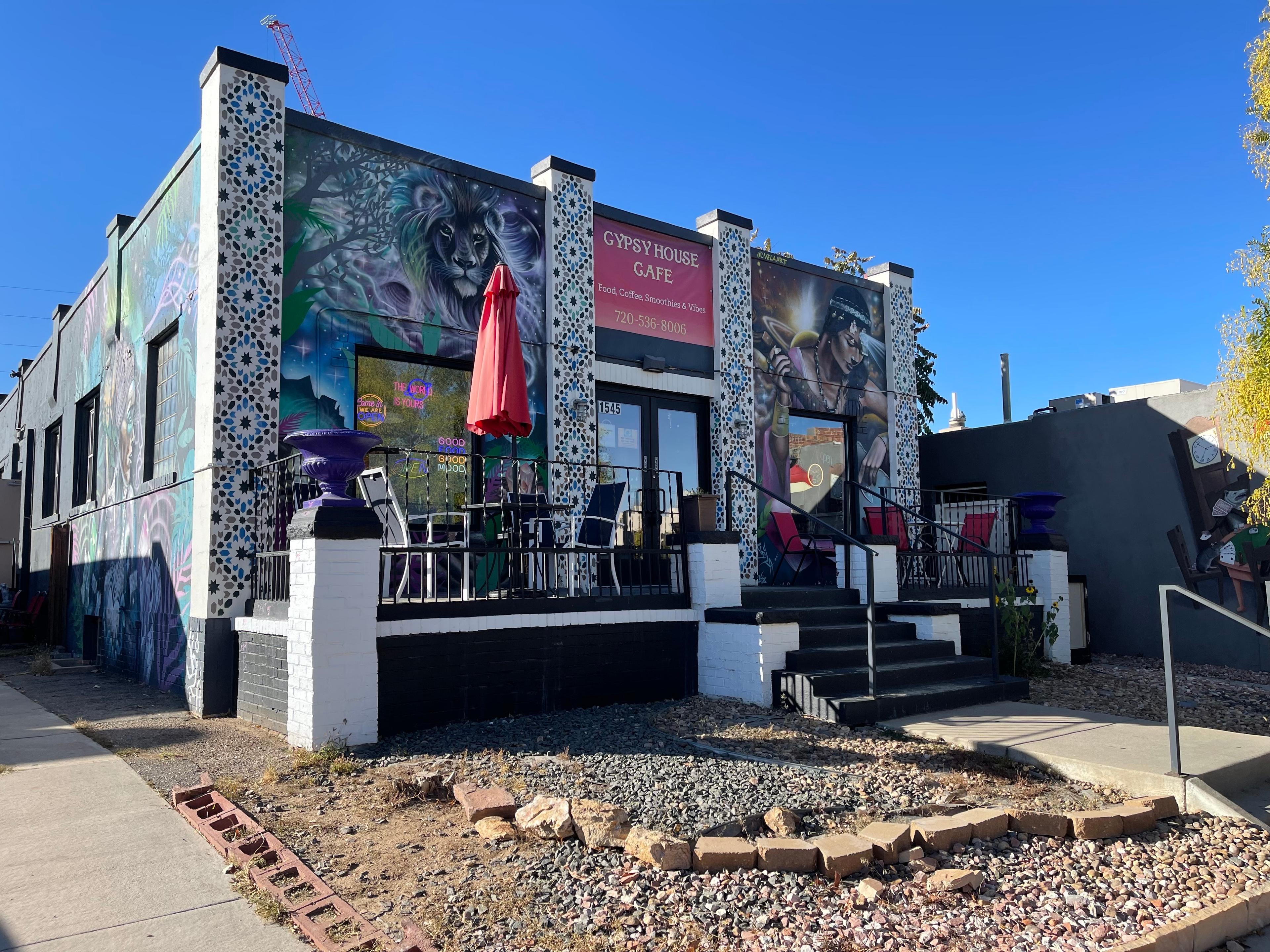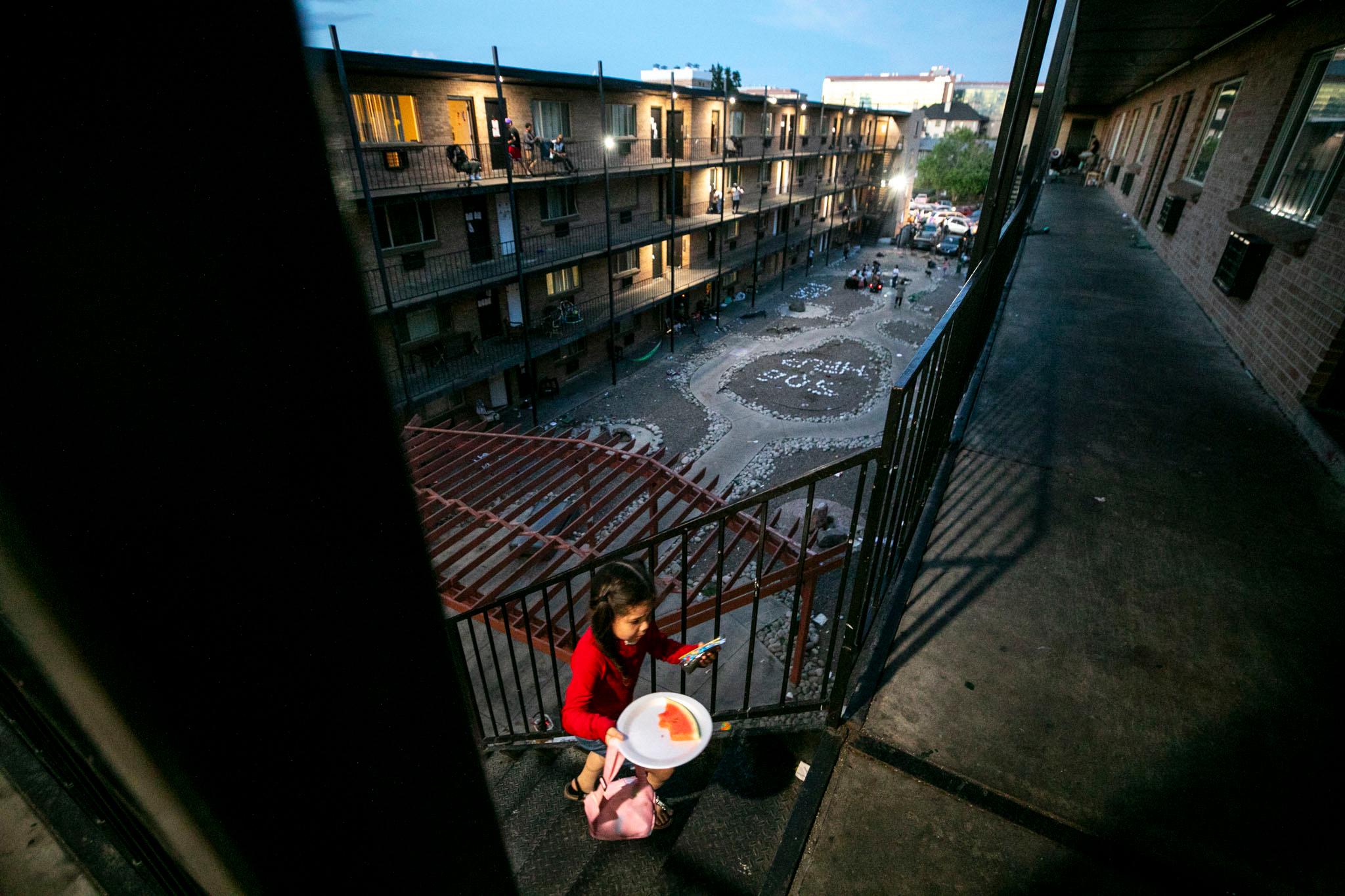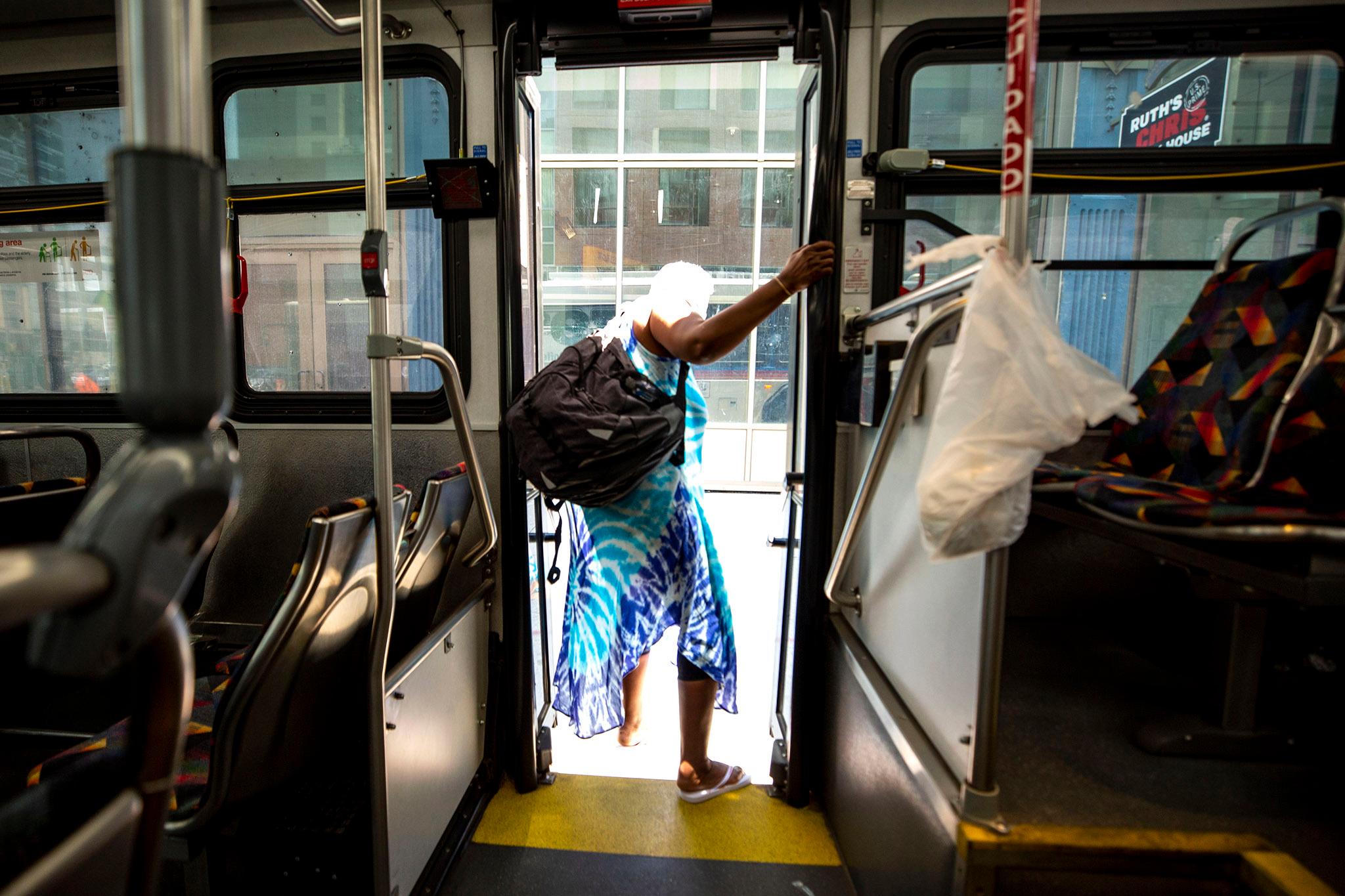Updated on July 7:
Mayor Michael Hancock announced Thursday that his office is no longer submitting to City Council its proposed $40 million contract with GardaWorld to run Denver's migrant shelter program before the end of his administration on July 17. City Council must approve contracts before the mayor signs them.
With new mayor Mike Johnston taking office in less than two weeks, it is unclear whether or not the contract will come back before City Council, or if the city will pursue the same approach of working with a different private contractor to serve migrants.
The contract with GardaWorld raised questions from City Councilmembers and opposition from immigrant advocates over the decision to partner with a large, international corporation.
"While we had hoped to conclude negotiations, community engagement and City Council approval prior to the change in administrations, there is much more work to do and therefore we will not be submitting the proposed contract to Council for final action at this time," wrote Hancock in a statement Thursday.
"With more than 500 Central and South American refugees, asylum-seekers and migrants still in our care, we continue to believe that contracting out shelter services is in the best interest of our guests, city taxpayers, and city employees and operations. This contract was intended to alleviate the current staffing pressures on city operations and to provide a more financially feasible strategy to managing the challenge of migrant arrivals, many of whom experienced significant trauma on their journey to the United States. The current financial and operational burden is not sustainable. As the city assesses the most viable and sustainable path forward, Denver will continue to welcome and meet the immediate needs of new arrivals for temporary shelter, food and connections to other resources in partnership with our nonprofit and faith communities."
The American Friends Service Committee (AFSC) had circulated a petition urging City Council to vote down the proposed contract over concerns about the chosen company.
"This victory demonstrates how research and community organizing, strong partnerships, and relationships can defeat the efforts of a multinational corporation with a questionable record," wrote AFSC advocate Jennifer Piper in a statement Friday. She called on Johnston to work on a new proposal that would include stronger partnerships with local nonprofits and community groups.
In a statement Thursday to Denverite, Johnston, who will likely have to sort the city's response to future migrant arrivals, said the city would continue partnering with local nonprofits to support migrants in Denver.
"Denver has always been a city that cares for immigrants, refugees, and new arrivals, and I'm committed to continuing that work and addressing the migrant crisis starting on day one," Johnston said in the statement. "I'm incredibly grateful to the city and the city employees who have done a great job to help support migrants as they arrive in Denver. We know that this is a critical and complicated issue, which is why we specifically created a standalone transition committee on Migrants and Immigration that is working with community leaders to collect feedback on how our administration can best care for and serve migrants."
When asked for comment, GardaWorld issued the following response: "We respect the City of Denver's decision and look forward to continuing to discuss ways we can assist the city in the future."
Our original story follows below.
In December, when hundreds of migrants began arriving in Denver daily, the city scrambled to respond. Denver closed rec centers and diverted staff to open emergency shelters and welcome centers, solicited volunteers and donations and spent almost $18 million on emergency operations. Arrivals dropped by February, but when numbers jumped back up in May, Denver went through a similar scramble again.
The challenge of quickly mobilizing and demobilizing migrant services prompted the city to put out a call for applications from private contractors who could take over migration response efforts long term. In June, officials chose a contract with an international security company called GardaWorld, which is promising to operate a 1,000 person shelter with intake services, food and transportation all at one location.
The contract that City Council is considering would cost the city up to $40 million through March of 2024, with the option of two one-year extensions through 2026. $20 million would come from a mix of city contingency funds, the Department of Human Services funds and unspent American Rescue Plan Act federal pandemic funds to fund the program through the end of 2023, while the city would allocate the additional $20 million in the 2024 budgeting process.
But some Councilmembers have lingering questions about the contract, and organizers from American Friends Service Committee (AFSC), a nonprofit and immigrant rights group that's been involved in welcoming migrant arrivals to Denver, are urging Councilmembers to vote no due to concerns with the chosen company.
GardaWorld is a Canadian security services company made up of a number of arms that provide everything from security personnel and technology to cash management and event operations.
In presenting its plan to City Council, GardaWorld Vice President Scott Elliott pointed to GardaWorld's work with migrant shelters in Texas, Virginia and Illinois and with emergency hurricane response work in Alabama, Louisiana and Washington. Elliot said the company would provide services including staff hiring, medical personnel, case management, language services, transportation, donations management and more. Denver would still be able to mobilize motels for overflow shelter space.
Jay Morein, executive director of Denver's Department of Human Services, said the GardaWorld contract scored the highest among the five applications the city received. He said GardaWorld's proposal was particularly appealing because of its ability to "adapt and be nimble" based on changing arrival levels. GardaWorld's plan would also serve hot-food on-site and host an intake center and shelter space at one location, things the city was unable to do in its emergency response this past year.
"The city doesn't really have the experience or expertise in being able to serve the migrants and we knew that there were others outside of the city that did have that experience," Morien said.

But little information about GardaWorld's shelters and emergency response experience, or how GardaWorld was directly involved in many of these projects, is publicly available beyond what it presented to Council.
AFSC organizer Jen Piper, who has helped support the migrants who arrived in Denver in recent months, also raised questions about GardaWorld company Crisis24's partnership with Palantir Technologies Inc. The Washington Post reported that Palantir "provided digital profiling tools to the federal agency as it carried out President Trump's increasingly controversial policies for apprehending and deporting undocumented immigrants."
GardaWorld Senior Vice President David Watson told City Council in a committee meeting that the company would not share information with ICE about migrants they would serve in Denver.
"GardaWorld is a non-partisan company committed to providing services and solutions for its clients with the utmost respect for human rights and human dignity," wrote President Pete Dordal Jr. in a statement Elliott read to City Council.
Councilmember Paul Kashmann said that the company "said the right words" about human rights, but that he wanted more assurance about its actual operations.
"My main concerns are that we're dealing with a large multinational corporation which always gives me pause, because I wonder at their familiarity with our particular context and with the service provider organizations already doing this work in Denver," Kashmann said. "Then there's the fact that 15 minutes of online searching comes up with some concerning articles about their corporation. I recognize that large corporations have different divisions that aren't always intimately related, but I'm still not finding anything that tells me they're the best thing since sliced bread."
A 2020 Tampa Bay Times investigation that found that the company took safety shortcuts in growing its armored truck business, leading to crashes and deaths. The Tampa Bay Times also reported that the company faced multiple federal investigations regarding its armored trucks, with little action on improved safety.
A recent Miami Herald article reports that GardaWorld bid for a controversial contract run by Florida Governor Ron DeSantis' administration to fly migrants from Texas to other parts of the country. GardaWorld was not the company involved in the 2022 migrant flights from Texas to Martha's Vineyard, Mass., also orchestrated by DeSantis, in which people said they were "tricked" into getting on the plane to a town that was not told to expect migrants.
"We understand the concerns that interstate migrant relocation can cause, and we will not pursue this type of service so that we may focus on our critical work supporting the City of Denver," wrote Dordal in his statement to City Council. It's unclear whether he is referring to the recent Florida bid.
GardaWorld did not respond to Denverite's request for comment about concerns by council members and opposition to the contract.
Michael Strott, spokesperson for Mayor Michael Hancock, said the city reached out to a number of references provided by GardaWorld and that the city attorney's office "performed additional due diligence" on the company.
"Any time you make an operational change of this nature, there are going to be concerns raised, and we appreciate them being raised. We're aware of the allegations, reviewed the concerns and have questioned GWFS [GardaWorld Federal Services] directly about them, and we're confident in their ability to care for a vulnerable population that continues to number more than 500 individuals currently in our care," Strott said.
"There are currently 45 city employees with Denver Human Services and over 100 on-call staff dedicated to this response being diverted away from their other duties. This contract will help alleviate the current staffing pressures on city operations while providing for an additional service provider, without which Denver's existing shelter system would not be able to meet the demand."
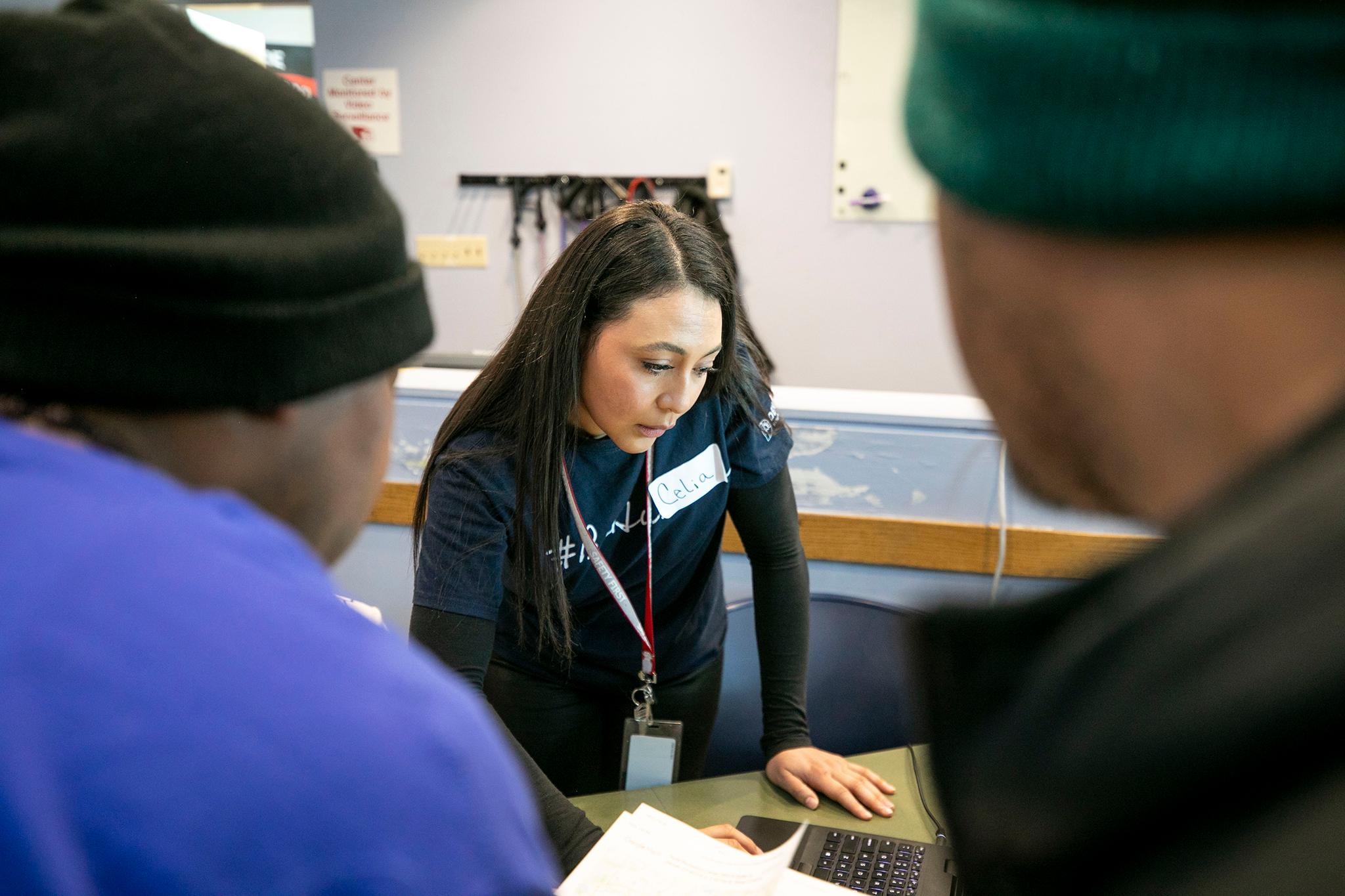
AFSC, which works with migrants in Denver, has circulated a petition urging Denverites to write to their Councilmembers to vote down the contract.
"They are not getting into sheltering because they're a humanitarian agency, they're getting into it to make money," Piper said.
Piper said she would like to see more accountability for GardaWorld if the company violates terms of the contract, such as financial penalties. Strott said contract laws do not allow penalties for performance issues in contracts.
"We understand the need to have a consistent presence running the effort, and we too would like to see the city workers be able to go back to their jobs, to see the city's costs lowered by not having to pay overtime to city employees for this effort, we'd love to have consistent leadership at shelter locations so that the expectations are clear and it's easier for nonprofits to serve the community, but this contractor is not the solution to those issues," Piper said.
Other councilmembers raised questions about assurances around food quality, space, grievance policies and ways the city will monitor success at the proposed shelter.
City officials said the Department of Human Services will hire a specific program manager who will focus on the success of the contract and program. An exact location for the shelter has not yet been chosen.
Councilmember Amanda Sandoval also asked about how local nonprofits who have been helping with the existing efforts will continue to be involved in sheltering and migrant response. Morein said that while the contract does not mention any specific role of nonprofits, the city will continue to work with nonprofits and GardaWorld, especially in referring migrants to nonprofit support services when leaving shelters.
But how the city will support migrants who want to stay in Denver after they leave shelters is not a question answered by the proposed contract with GardaWorld. During a committee meeting on the proposed contract, Councilmember Robin Kniech said the work on a contractor for emergency shelter is only half the job.
"I think we just have to acknowledge that, that we're saying that there's a second system that this entire thing relies on and that we're not funding it in this step," Kniech said. "I am not clear which agency is picking up for our residents, which they will be. They will be our residents, whether they're homeless on the day that Garda contract cuts them off, whether they are contingently housed, whether a church picks them up, whether they are working day labor, whether they have found housing and they're in new resident permanent housing, they are residents of our city."

